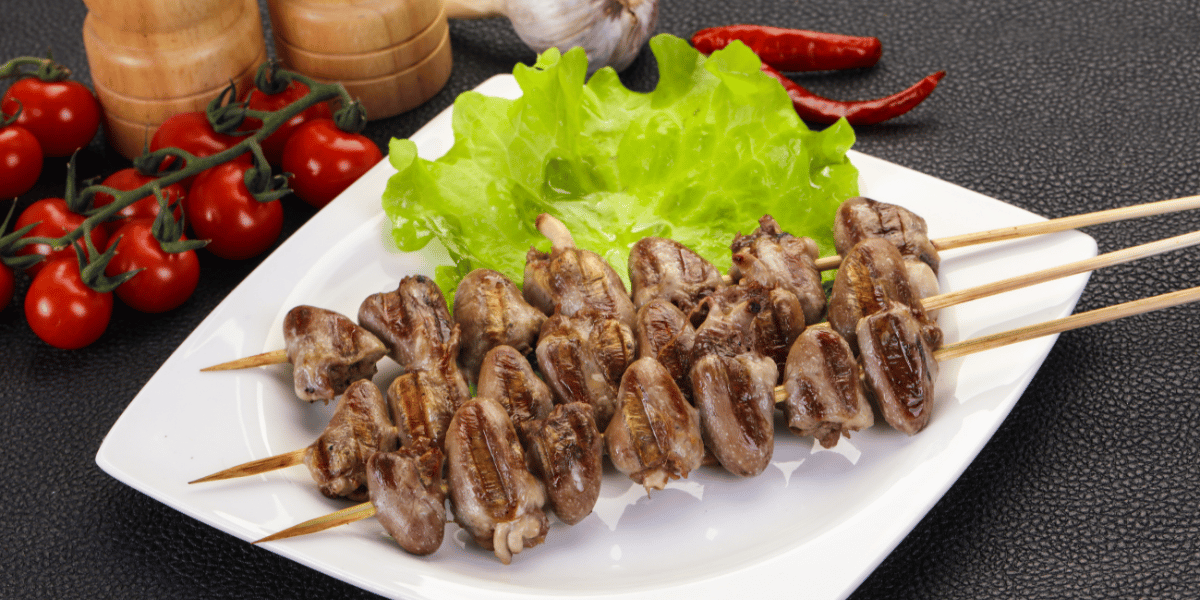5 Signs You Might Be an Emotional Eater
Ever found yourself reaching for a tub of ice cream after a tough day at work? Or maybe you’ve polished off a bag of chips while binge-watching TV...
.png?width=70&height=70&name=Stark_LogoMark%20(1).png)
Organ meats have long been a mainstay in traditional diets, but despite this long history of nutritional benefits, they often remain overlooked by modern eaters. However you choose to add organ meats into your diet – liver pates, kidney dishes, or savory heart stews – don't overlook this delicious and nutritious fare. Organ meats offer an unparalleled nutrient-dense superfood for those looking to reap the benefits of a varied, natural diet. In this article, learn how incorporating organ meat can make for meals that are not only tasty but also packed full of essential vitamins and minerals to provide all the nourishment needed over time!
Organ meats are a powerhouse of essential micronutrients that your body needs for optimal function. Packed with nutrients such as heme iron, zinc, folate, vitamin A, and B12 to fuel proper immune system operation and healthy bones; selenium, copper & vitamin D which all contribute towards red blood cell production - organ meat serves up an incredibly nutrient-dense dish! The even better news is that these storage organs come complete with enzymes and co-factors which help your body best utilize every bit you consume – making it easier than ever before to ensure you hit daily nutrition requirements.
Athletes can take their performance to the next level by increasing their consumption of organ meats, which are particularly high in essential amino acids such as taurine, carnosine, and carnitine. Taurine is found mainly in heart and brain tissue but also helps with muscle function. Carnosine strengthens muscles against fatigue and improves endurance levels while carnitine transports fatty acids into energy providers for fuel - these three components combine to deliver an unbeatable powerhouse of power that athletes need if they want superior results!
Enjoying organ meats can benefit your body in a variety of ways. Compared with plant foods, animal products like liver and heart provide higher bioavailability - or ability to be used by the body - for essential micronutrients such as heme iron, retinol vitamin A, copper & even non-heme iron! Many times this increased absorption is due to other nutrients present, for instance consuming meat may help enhance the uptake of minerals like zinc & selenium too. Such bioavailability not only helps prevent nutrient deficiencies but also allows for efficient utilization within the human organism.
There is a growing fallacy that plant-based meat alternatives are the best option for environmentally friendly eating. While on the surface it may seem sensible, the realities of factory mono-cropping are much bleaker. However, instead of only consuming muscle meat, why not get the most out of your food and help reduce your food's environmental impact? Eating organ meats from pasture-raised animals is an ethical alternative that honors more than just the steak on our plates. Not to mention, it encourages regenerative agriculture as these animals are essential for maintaining soil health while reducing synthetic fertilizer reliance, all of which contributes to more nutrient-dense foods as opposed to relying on fillers.
From skin and bones to tendons and ligaments, collagen is an essential protein for a healthy body. Heart meat stands out as one of the best sources of this key nutrient, as it is bursting with glycine, proline, and hydroxyproline - all vital amino acids that build up our bodies’ structural strength. Eating foods rich in these proteins provides incredible benefits such as increased elasticity in your skin and improved joint health – not to mention its positive effect on gut health!Incorporating organ meats from animals raised in ethical pastures such as grass-fed or certified organic farms ensures maximum benefit without unwanted additives or hormones that are packed with easily absorbed bioavailable micronutrients and collagen. Organ meats provide improved health outcomes that are far superior when compared to plant sources - all while reducing food waste and helping farmers around the globe transition towards more sustainable agricultural practices. So if you want to amp up your diet in more ways than one – this is definitely an option worth considering!

Ever found yourself reaching for a tub of ice cream after a tough day at work? Or maybe you’ve polished off a bag of chips while binge-watching TV...

The single determining factor in whether you gain/lose weight is related to how much you eat. If energy intake exceeds energy expenditure, then you...

Are you on a weight loss journey but not seeing the results on the scale? Do you feel you're doing everything right – consuming protein-rich foods,...
